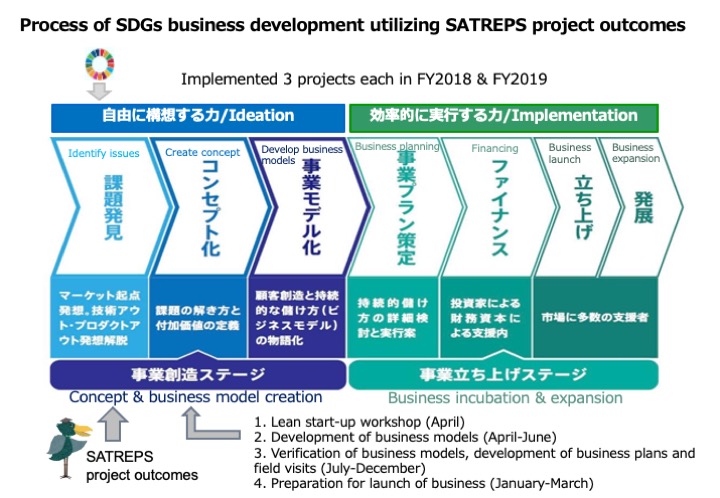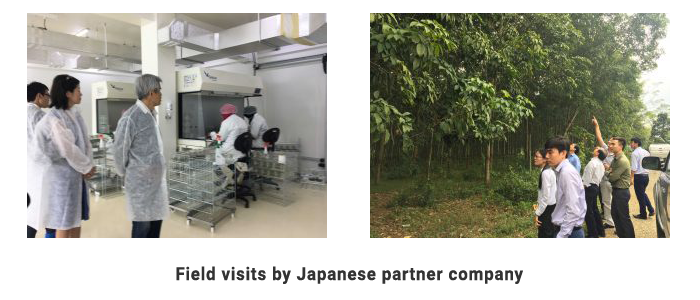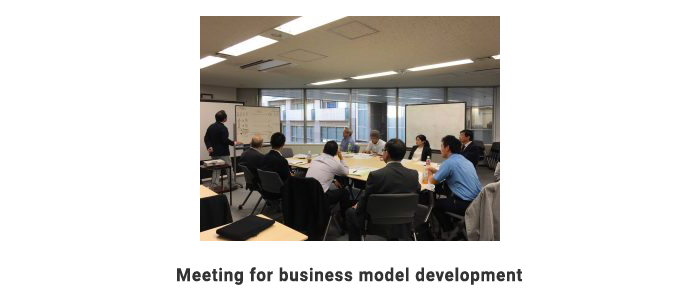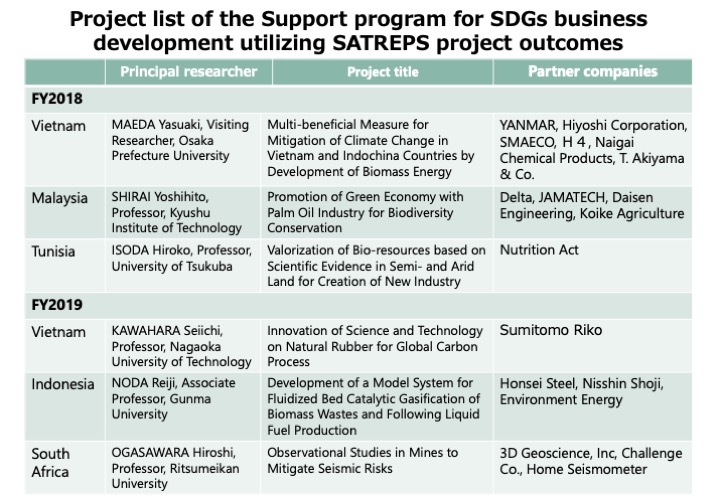Solve issues in developing countries utilizing the outcome of SATREPS projects and the expertise of the Japanese private sector [FY2018-2019]

SHIP supported the implementation of “Support program for SDGs business development utilizing SATREPS project outcomes” sponsored by the Japan Science and Technology Agency (JST) for two years in FY2018 and FY2019.
SATREPS (Science and Technology Research Partnership for Sustainable Development) is a program aiming to strengthen international science and technology cooperation between Japan and developing countries that has been implemented since 2008 by JST in collaboration with Japan Agency for Medical Research and Development (AMED) and the Japan International Cooperation Agency (JICA).
The program provides funding of about 100 million yen per year for three to five years for science and technology projects to solve global issues, to be carried out jointly by Japanese and developing country researchers. To date, more than 150 projects have been implemented in about 50 countries in the fields of environment and energy, bioresources, disaster prevention and mitigation, and infectious diseases control.
SATREPS emphasizes deploying its research outcomes in the society, and the “Support program for SDGs business development utilizing SATREPS project outcomes” was implemented to strengthen this emphasis. Specifically, researchers who have raised their hand to commercialize their research outcomes were matched with Japanese private companies, and then spent about one year building a business model while finding local and Japanese business partners, customers, and investors (see the diagram above).


SHIP provided support for implementation of projects in Vietnam, Malaysia and Tunisia in FY 2018, and in Vietnam, Indonesia, and South Africa in FY 2019 (see the list of projects below). As a result, several patterns of results were achieved, including cases in which multiple companies participating in a project invested in and launched a new company to start a business, cases in which businesses were launched as new businesses of a company participated in a project, and cases in which verification of the business model was decided to continue toward commercialization.

Maximizing the use of STI to achieve the SDGs is on the global agenda. In supporting the implementation of this program, it became clear that scientific and technological research outcomes based on locally identified issues are very effective as business resources, and that the local networks that Japanese researchers have built over the years with governments, universities, and local companies in the partner developing country are key to develop concrete business models. On the other hand, the project experienced the difficulty of securing initial funds to launch businesses targeting developing countries.
SHIP plans to use its experience in supporting this program to continue to focus on developing “issue-driven” business models in collaboration with many stakeholders and to identify ways to expand investment in incubation-stage businesses.
Share this article
